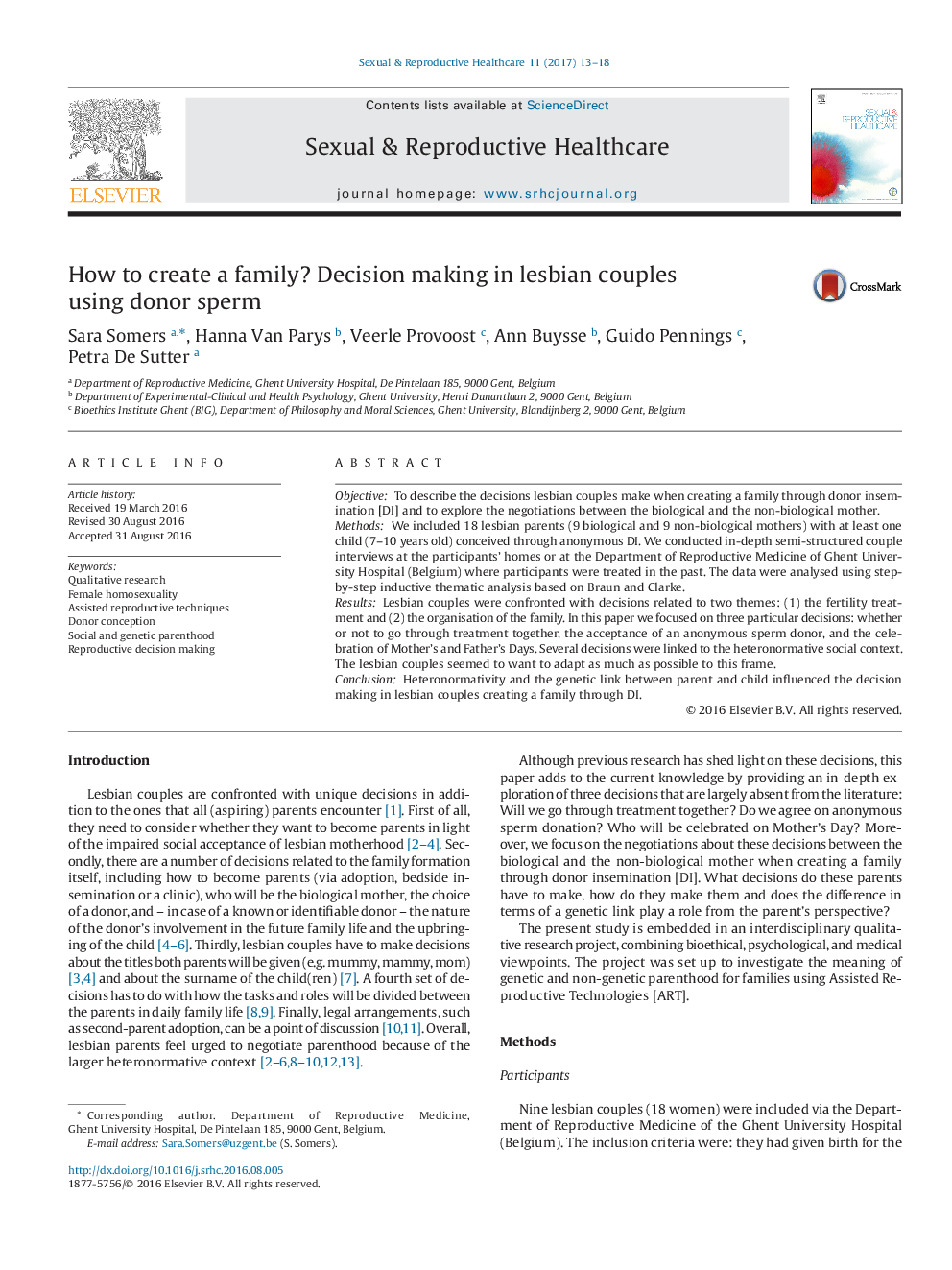| Article ID | Journal | Published Year | Pages | File Type |
|---|---|---|---|---|
| 5866101 | Sexual & Reproductive Healthcare | 2017 | 6 Pages |
â¢Being able to actively participate at the moment of the insemination was seen as confirmation that the pregnancy was a joint project.â¢The choice for an anonymous sperm donor was made to protect either the family, the non-biological mother, the child or the donor.â¢In most couples it seemed self-evident that Mother's Day was a celebration of the biological mother.
ObjectiveTo describe the decisions lesbian couples make when creating a family through donor insemination [DI] and to explore the negotiations between the biological and the non-biological mother.MethodsWe included 18 lesbian parents (9 biological and 9 non-biological mothers) with at least one child (7-10 years old) conceived through anonymous DI. We conducted in-depth semi-structured couple interviews at the participants' homes or at the Department of Reproductive Medicine of Ghent University Hospital (Belgium) where participants were treated in the past. The data were analysed using step-by-step inductive thematic analysis based on Braun and Clarke.ResultsLesbian couples were confronted with decisions related to two themes: (1) the fertility treatment and (2) the organisation of the family. In this paper we focused on three particular decisions: whether or not to go through treatment together, the acceptance of an anonymous sperm donor, and the celebration of Mother's and Father's Days. Several decisions were linked to the heteronormative social context. The lesbian couples seemed to want to adapt as much as possible to this frame.ConclusionHeteronormativity and the genetic link between parent and child influenced the decision making in lesbian couples creating a family through DI.
